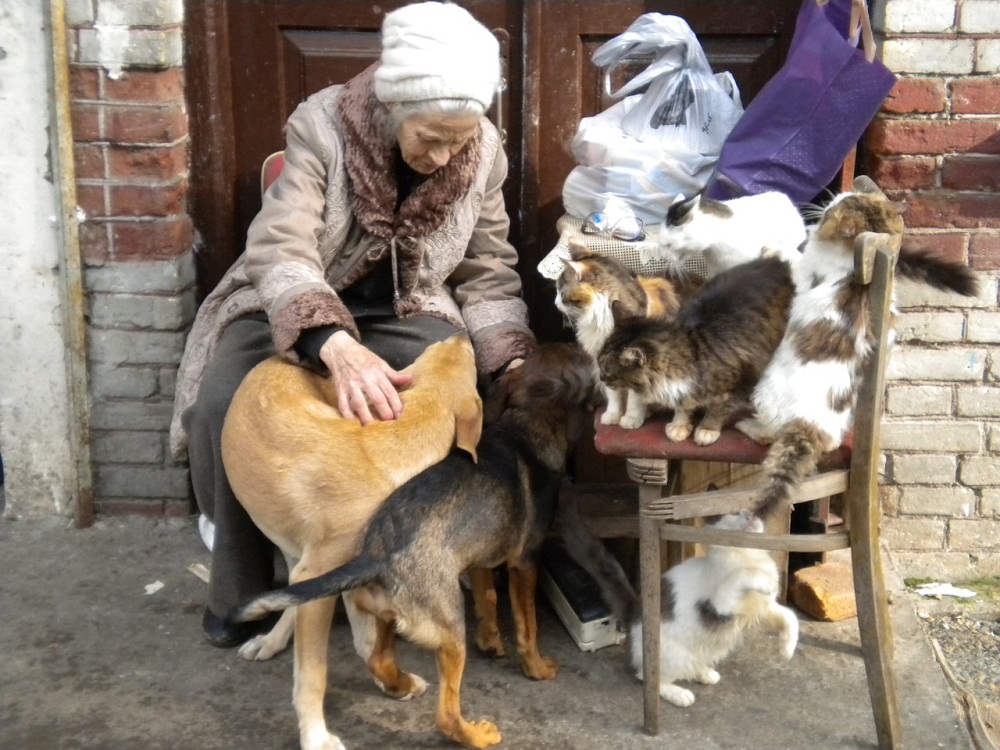A dog's best friend? Vagrant dogs being shot in Abkhazia
The problem of homeless dogs in Abkhazia is a significant one – one that’s being solved in a very simple manner: dogs are killed.
They are being shot in the regions surrounding Sukhumi with guns, while in Sukhumi itself they are being euthanized via a deadly dart fired from an air gun.
This, local authorities say, is the only solution available given the money available in the current budget. There is no expectation that money for shelters or dog homes will be financed from the budget in the near future.
U
sers of social media react every time photos appear online of dogs lying dead in the street.
Some are protesting against the murders:
“Who are these monsters? Why should they kill animals that are not guilty of anything?” writes one social media user.
“When will they finally build a dog shelter?” voices another user.
Others say that funds should be given to putting down dogs in this manner:
“It’s better to put them to sleep or shoot them rather than build a shelter. It’s cheaper.”
“We need a good programme to catch vagrant dogs. Otherwise, at this rate it’s us that will be afraid of them!”
These two groups have been trying to prove the legitimacy of their position to one another almost non-stop. But it never goes further than verbal fights and arguments. Currently in the republic there is no animal protection law, and for that reason it is pointless to wonder whether the authorities will authorize the construction of shelters, organized mass catches or sterilization programmes for the dogs.
“We only react when citizens appeal to the administration after having been bitten by a dog or saw aggressive dogs,” says the head of the communal department, Dmitri Akhuba. “It is only then that we take measures – specialists go out, they assess the situation and make a decision. As a rule, vagrant dogs are put to sleep.”
What’s to be done?
Several years ago in the center of town, an elderly woman by the name of Evelina used to spend some of her money to help homeless animals. She fed them and treated them. The animals were always next to her house.

Then, other girls in the neighborhood started helping her out. They continued to care for the homeless animals even after Evelina passed away. They feed them, treat them and they find homes for them on a regular basis. Most of the dogs have been adopted by dog-lovers from Russia, while some have ended up in Finland.
Another elderly woman who lived in the region of Turbaz spent her entire pension caring for homeless cats and dogs. Recently, she fell ill and now the animals have gone hungry again.

L
ast year in Gagra, a charity fund called Bagira was set up to help homeless animals. It was created by Saida Otyrba in memory of her dog Bagira, who died after teams of dog catchers ‘cleaned’ the city ahead of the holiday season.
“They threw poison everywhere and when we went out for a walk, she got a hold of some and I didn’t notice it in time,” says Saida Otyrba.
There are about 40 homeless dogs that live in her shelter. They are cared for by two people: Saida and her friend Karina Eksuzyan. Recently, the mayor of the city gave them 5 000 square meters of land [a bit more than an average football field]. But Bagira’s organisers were not in a hurry to move to the plot of land because they had no money to construct shelters and the location was 40 kilometers outside of town.
“We need a minimum of 180 000 roubles [about USD 3 000] for the gate alone. Throughout the year we only scraped together about 15 000 roubles [about USD 266]. We cannot take animals to a place where there is no gate. They will run away. For that reason we still have to rent a plot of land not too far away. Our friends made us some little shelters,” says Saida.
Here are some of their expenses:
Dog house – 3 500 roubles [about USD 62]
Food – 2 400 roubles [about USD 43] a month per dog
Vaccinations – 490 roubles [about USD 9] per dog
Tests – 1 800 roubles [about USD 32] per dog
Rent for plot of land – 12 000 roubles [about USD 213]
Otyrba says that they mostly receive help from people from Russia and Europe, and a few local Abkhazians help out as well. They get much of their support from Instagram and Facebook.
“Recently a stranger called from Russia and offered us his car. Now we drive, whereas before we used to go by foot,” she says.
Over 300 homeless dogs have been treated and given homes since the charity was set up. Dogs are brought to the charity from across the republic.
“Today we brought in a big dog that had been hit by a train. I come home all time and find puppies tied to the gate. The telephone constantly rings with calls from all over Abkhazia. Sometimes I have to travel all over the place – for example, I go to Pitsunda, pick up a dog and leave it at home; then go somewhere entirely different to get another one. We take them to Dagomys and Sochi to get treated,” Saida says.
Sukhumi authorities have a plan of their own however: to put some 30 stray dogs and cats to sleep every month.



















